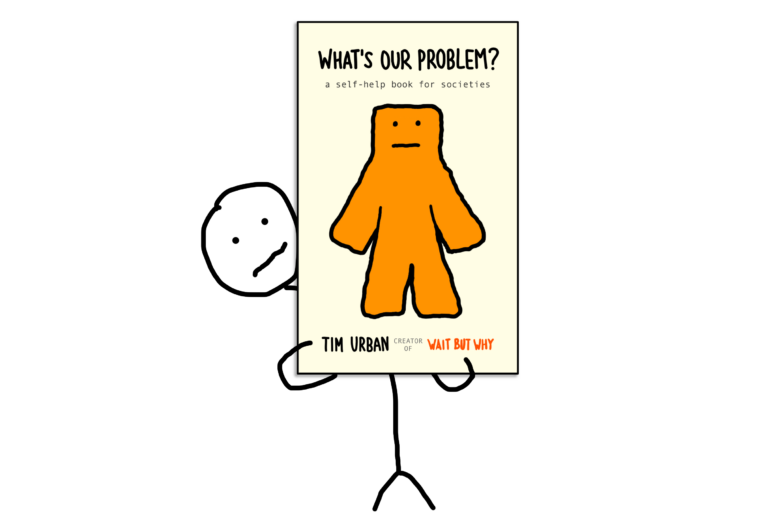A while back, we posted a Dinner Table with the simple instruction:
Teach me something.
The comment section exploded with over 700 comments. And people did indeed teach me something. Like Mark S., who taught me a lot of things about animated movies:
I work for a studio making animated movies.
It takes around 3 years to make a movie, and around 300 artists. The animators produce around 2 seconds of animation per day on average. The time to render a final image (frame), ie do all the lighting calculations, is around 4-8 hours, and there are 24 frames per second. As you can imagine based on those numbers, animated movies are some of the most expensive movies made. Production costs are around $150 million, and the same again is spent on marketing. In the end, to just break even at the box office they need to earn around $500 million. So every movie is a big deal for the company making it. If you wonder why most such movies are mainstream, aimed at kids and don’t take big risks, that is the reason.
Why are animals so popular? Partly because they are cute and cuddly, but also they have no identifiable race, which is good if you want to market your movie all over the world, something that is increasingly important.
Is making expensive cartoons a waste of time and resources and we should be doing something more useful? Well a lot of families get to spend time together with their kids for 90 minutes and escape into what is hopefully a memorable fantasy world for a little while. And a lot of the technology ends up applied in other areas since creating the effects seen involves a lot of R&D and tends to push technological boundaries.
And AmyMc, who taught me a clever way to steal an umbella:
Here’s a useful tidbit. If it’s raining and you’re without an umbrella and don’t feel like/can’t buy one, go into the nearest bar or restaurant and tell them you left your black umbrella there last week. They will produce a black umbrella and off you go. I own a bar in NYC. We have dozens of umbrellas. We don’t care if you actually left an umbrella last week, we’re just happy to be rid of one.
And Scott Hughes, who taught me about the intense weirdness of neutrinos:
My favorite subatomic particle is called the “neutrino,” also known as the “ghost particle.”
About neutrinos:
-Mass: Tiny, even compared to other subatomic particles. (It has been determined that they have mass, unlike photons, but it’s so small and their behavior is so complex that we can’t pin down a number yet.)
-Speed: We don’t really know, but it’s seriously close to the speed of light. (Which is related to the fact that we don’t have a solid handle on their mass.)
-Neutrinos have a theoretical connection to dark matter, which is hypothesized to compose the majority of mass in the known universe.
-The nuclear fusion in the sun spits out a whole mess of neutrinos in addition to the photons which we know and love. Together they come hurtling toward us all day every day.
-Because of their neutral electrical charge and low mass, neutrinos interact very weakly with most matter. So weakly, in fact, that they pass right through our bodies without interacting with our cells, like visible light, UV, or gamma radiation would.
-Think of it like throwing a handful of sand though a chain link fence– our bodies contain enough empty space relative to the size of the neutrinos that they just slip through.
-Hold up your hand. Every second 65 billion neutrinos pass through every square centimeter of you.
-Weirder still: Scientists in Japan took a photo of the sun AT NIGHT using a neutron detector. In other words, they pointed the thing down toward the ground, and there were enough neutrinos which passed unstopped through almost 8,000 miles of rock to light up the detector and produce a photo of the sun.
(See it here: http://bit.ly/1XqxrMd )
There were hundreds of fascinating responses, and responses to those responses, covering a vast range of topics. I enjoyed myself and I think many of you did too.
So let’s go for round 2.
Here were the simple instructions:
What’s something you know about better than most people—something you know about the world, about your profession, about science or math, about history or current events, about the arts, about how things work. A fact most of us aren’t aware of, an explanation of something that can help us understand it better, a description of something you know how to do that we don’t. It can be anything at all. Just teach me something you think I and other readers probably don’t know about as well as you do.
Use any medium you want—typing it out works, but also feel free to get on video and use a whiteboard or do a screen share.
And if you can’t think of anything to teach, request something you’d like to be taught.
___________
The Dinner Table will be taking two weeks off for the holidays—back in January!
You can sign up for the Dinner Table email list here to be notified about the new topic each week, and remember to submit future topic suggestions to [email protected].





